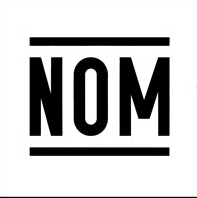Certification mark

A certification mark on a commercial product often indicates the existence of an accepted product standard and a claim that the manufacturer has tested the product to verify compliance with that standard. The specific specification, test methods, and frequency of testing are published by the standards organization. Certification listing does not necessarily guarantee fitness for use.
Certification marks distinguished from other marks
Certification marks differ from collective trade marks. The main difference is that collective trade marks may be used by particular members of the organization which owns them, while certification marks are the only evidence of the existence of follow-up agreements between manufacturers and nationally accredited testing and certification organisations. Certification organizations charge for the use of their labels and are thus always aware of exact production numbers. In this way, certification organisations can be seen to earn a commission from sales of products under their follow-up regimes. In return, the use of the certification marks enables the product sales in the first place.
Certification is often mistakenly referred to as an "approval", which is often not true. Organizations such as Underwriters Laboratories, NTA Inc, and CSA International for instance, only "list", they do not approve anything except the use of the mark to show that a product has been certified. Thus, for instance a product certification mark for a fire door or for a spray fireproofing product, does not signify its universal acceptance for use within a building. Approvals are up to the Authority Having Jurisdiction (AHJ), such as a municipal building inspector or fire prevention officer. Conversely, FM Global does use the term "Approvals" for its certification listings, which are intended for use of the products within buildings that are insured by FM Global. The German accreditor Deutsches Institut für Bautechnik (DIBt)[1] issues "Approvals" for systems. All of these listed products must conform to listing and approval use and compliance.
For various reasons, usually relating to technical issues, certification marks are difficult to register, especially in relation to services. One practical workaround for trade mark owners is to register the mark as an ordinary trade mark in relation to quality control and similar services.
Certification marks can be owned by independent companies absolutely unrelated in ownership to the companies, offering goods or rendering services under the particular certification mark.
Regulations concerning the use of certification marks
Trademark laws in countries which provide for the filing of applications to register certificate marks also usually require the submission of regulations which set out a number of matters, including:
- the people authorized to use the certification mark
- the characteristics to be certified by the certification mark
- how the certifying or standards tests these characteristics and supervises the use of the mark
- dispute resolution procedures
The main purpose of the regulations is to protect consumers against misleading practices.
List
- The CE mark meaning "European Conformity", formerly EC mark is a mandatory conformity mark for products placed on the market in the European Economic Area (EEA). With the CE marking on a product the manufacturer ensures that the product conforms with the essential requirements of the applicable EC directives.
- The NOM logo serves a similar purpose for products on the market in Mexico.
- The FCC Declaration of Conformity is a mandatory conformity mark for electronic equipment manufactured or sold in the United States. This marking certifies that the product meets standards of the Federal Communications Commission regarding electromagnetic interference.
- The RCM is the compliance mark for all applicable Australian Communications and Media Authority (ACMA) regulatory arrangements, including all technical and record-keeping requirements.
- Kite Mark is a British Standard under BSI Group.
- Underwriters Laboratories holds a service mark on the phrase "UL Listed", and allows manufacturers of electrical and other safety equipment to use the UL mark only if they are under follow-up agreement by UL. This lets consumers identify products that meet quality criteria set by a company other than the manufacturer.
- The National Testing Agency (NTA Inc) mark allows consumers to identify certified products in the building industry.
- Quality Auditing Institute (QAI) certification mark, commonly used on building products, plumbing, and electrical products.
- The LPCB (Loss Prevention Certification Board) mark by BRE Global (part of the Building Research Establishment group) independently certificates fire and security products, which are then listed in the Red Book.
- The Woolmark certification mark, used to identify goods which contain wool.
- The "Idaho" and "Grown in Idaho" certification marks, used by Idaho Potato Commission to indicate potatoes grown in the State of Idaho in the United States of America.
- The "Champagne" certification mark, used to indicate goods which have an appellation of origin of the Champagne region in France.
- The Risknowlogy certification marks are used for risk, reliability, safety and SIL related products, solutions, services, organisations and professionals
- The SGS Product Safety Mark is used to prove that the product fulfills all relevant product safety requirements applicable in the destination market.
- The Bureau Veritas certification mark, used to indicate, for example, sea-worthiness of ships.
- The hechsher (
 , U in a full circle) of the Orthodox Union.
, U in a full circle) of the Orthodox Union. - The Asthma & Allergy Friendly Certification Mark allows consumers to identify products that have been put through and passed standardised testing that is relevant for those suffering from asthma and allergies. Allergy Standards Limited operates the Certification Program in America, Canada, Ireland and the UK.
- The CSA mark used by the Canadian Standards Association
- State Quality Mark of the USSR (succeeded by GOST)
- International Fairtrade Certification Mark
- Japanese Industrial Standards symbol (〄, U+3004)
- Certification marks in India
- TÜV marks, used by private safety organizations called Technischer Überwachungsverein in Germany
Gallery

.svg.png)





 NTA Inc
NTA Inc

International treaties and certification marks
Many jurisdictions have been required to amend their trade mark legislation in order to accommodate the requirement of protection of certification marks under the TRIPs treaty.
Cases
Cases involving certification marks include:
- Re Legal Aid Board's Trade Mark Application (unreported 3 October 2000, UK CA)
- the Sea Island Cotton case [1989]RPC 87
See also
- Certification listing
- Certification marks in India
- Collective trade marks
- Fire protection
- Hallmark
- Listing and approval use and compliance
- Passive fire protection
- Product certification
- Trademark
References
External links
| Wikimedia Commons has media related to Certification labels. |
- List of Standard Certification Marks - description of the most common standard certification marks
- Risknowlogy Certification Marks - certification marks for risk, reliability, safety and SIL related products, solutions, services, organisations and professionals

